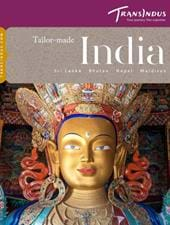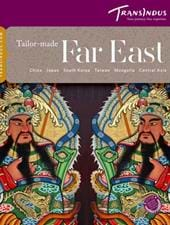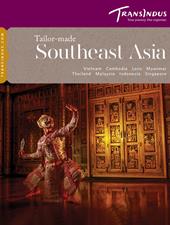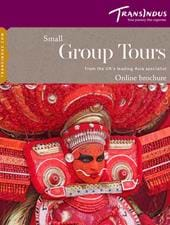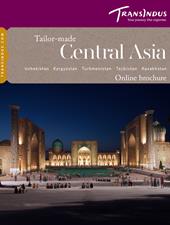Time zone:UTC +8 hours
Flying time: 16 hours 30 mins
Capital: Taipei
Currency
The currency in Taiwan is the New Taiwan Dollar (NT$). The Taiwan Dollar has seen major fluctuation over the past decade but has currently displayed prolonged stability against the pound. Please note that Chinese currency (RMB) is not accepted in Taiwan but can be exchanged along with other major currencies at major banks, hotels and exchange agents. Do not accept exchange offers from hawkers as you will likely end up with fake notes or a less than favourable exchange rate.
Note: Make sure you keep your exchange receipts as you may be asked to present them when trying to change back from NT$ into other currencies.
Money and travellers cheques can be exchanged at the airport, branches of government banks, some large department stores and some major tourist hotels. Only major bank branches will exchange pounds and euros, but all banks that offer currency exchange can change US dollars. Foreign exchange counters are generally open 9-7pm, excluding weekends and national holidays.
Torn, marked or otherwise damaged notes are more often than not rejected by banks and hotels.
Travellers cheques are best in US dollars and you should not rely on being able to change these outside the major tourist areas. Many hotels also have a limited amount of cash available and cashing Travellers Cheques may not be possible at certain days of the week.
Credit cards are accepted at most major hotels, department stores and high-end city restaurants. Do not depend entirely on international ATMs to withdraw your NT$, especially in rural areas. Though international ATMs are common in all the major cities they are only found in a limited number of banks in the smaller cities (although the number is growing).
Healthcare
Generally speaking Taiwan is one of the most advanced nations in terms of healthcare and disease prevention. Hospitals are of the same or higher standard compared with their Western counterparts and the government actively monitors the general health of its citizens with free inoculations for children against the most common diseases.
Before visiting Taiwan you should consult your doctor regarding the vaccinations it may be recommended to have. The World Health Organisation recommends that travellers to Taiwan have Diptheria and tetanus, Hepatitis A and B, MMR (Measles, Mumps and Rubella), Typhoid and Varicella (if you haven’t already had chicken pox).
Malaria has been successfully eradicated on the island with only sporadic cases of the mosquito born disease reported in the last decade.
We also recommend you carry with you a small supply of basic health care medication such as travel sickness tablets, anti-diarrhoea tablets, insect repellent, sun creams and a general purpose antibiotic, in discussion with your doctor. Although most of these items are available in Taiwan, the security provided by brands one is used to is reassuring.
Don't drink tap water without boiling it, though it's safe for brushing your teeth. Be careful with undercooked meats that are presented as part of some local dishes.
We strongly recommend that all travellers be properly insured for the holiday. Please check that it includes repatriation costs.
Safety
Compared with many other countries, Taiwan is considered one of the safest countries in the world for personal security.
Though serious crime against foreigners is relatively rare, petty crimes such as pick pocketing and purse snatching is not uncommon. This often happens in crowded areas such as stations, markets, shopping areas, sightseeing destinations, etc. so it is wise to be cautious with your personal possessions in public places such as these.
Precautions to avoid potential problems:
- Do not show off your money in public.
- Keep enough money for your immediate needs in your pocket, and hide the rest on your body or leave your backup supply in a safety deposit box at your hotel.
- Always keep valuables in a safety deposit box at your hotel instead of leaving them in your room.
- Remove any jewellery that may draw a thief's attention before you go out.
- Never wear a bag or purse on your street-side shoulder in order to avoid becoming a target of the "snatch-and-ride".
- Never carry your passport/visa, credit cards, traveller’s cheques or other travel documents in your shoulder bag or bum bag.
- Ensure that you are aware of the values of different local banknotes to avoid being deceived.
- Be particularly cautious about your possession in crowded areas such as local festivals, markets, tourist sites, railway, bus stations, on trains and buses.
Clothing
What to wear depends mainly on two things; when and where you are travelling. Taiwan’s weather varies tremendously with these factors. Winters are generally mild on the lower parts of the island but temperatures can drop quickly in the mountain regions. Even in summer the mountains can be cold at night so always travel with some spare layers in case you are planning a mountain visit.
Taiwan has no restrictions on what you can wear with the exception of religious shrines and temples where you will be expected to cover up. Clothing can be extremely cheap when purchased from local markets though Asian sizes may not always work for Western frames. Especially if you enjoy swimming you should bring your gear from your home country. Be aware that Taipei and other major cities are very modern, developed and wealthy so you may want to pack at least one smart outfit if you plan to mingle with the progressive and image conscious locals!
Laundry
Laundry service is available in most major hotels. Some hotels also tend to have a laundromat, which are considerably cheaper. Many tourist areas have independent laundry services in the vicinity.
Shopping
Taiwan provides great opportunities for the shopper—especially for antiques, stamps and coins, paintings, scrolls, woodblock prints, electronics (in Taipei) silk, clothes, bags, toys, tea, ceramics, pictures, pearls, jade and other memorabilia. Bear in mind that taking real antiques out of the country requires special permits, and that much of the 'pure' silk sold is in fact mixed with man-made fabric.
To avoid being overcharged bargaining is essential in areas where the prices are not clearly displayed. Always remember to be polite and try never to lose your temper or your cool. Many cities have markets selling fake goods such as watches, clothing, electronics, CD’s and DVD’s. While most of these brand copies are visually indiscernible from the original, bare in mind that their quality will almost certainly be questionable. Most foreign airport customs will turn a blind eye to small amounts of pirated goods, but if you decide to buy these items in larger quantities you could be prosecuted.
When purchasing an expensive item, always check the level of duty payable in your home country on your import. Please remember VAT may be payable even if an item is exempt from other import duties.
IMPORTANT: We do not encourage local guides to take our clients shopping and we do not endorse any specific shop, factory or outlet anywhere in Taiwan. Local guides are allowed to make stops at interesting factories or outlets with your consent and provided these visits do not shorten the sightseeing time.
Please note that we are not responsible for any shopping and related problems, although we assure you of any help that we can provide.
Photography
Bring more films than you think you will need, as you will find there is a lot to photograph! Although most major brands of colour film are readily available in Taiwan, slide or high/low ASA film may be difficult to find. One hour film processing is available in the larger cities, and the print quality has a very high standard. All security X-ray machines are film-safe.
Digital media cards are available from most tourist stalls, hotel shops or any of the countless electronics stores in the cities. Prices will vary enormously though so try to avoid shopping at large shopping malls and stick to smaller shops instead.
Points to remember:
- Do not take photographs at aerodromes, military installations, or other politically sensitive areas.
- Do not take photographs from aircraft.
- Do not take pictures of adults, children, or their possessions without first asking their permission.
- Taking photographs is forbidden in some museums, palaces, grottoes, and temples. These places usually have signs to let you know if taking photographs is not allowed.
- Some institutions permit photography with the advance payment of a small fee.
Post
There are Post Offices in all cities and towns throughout the country. Domestic and International mail are very fast and the cost is relatively low. Within some cities, there is often same-day delivery; between large cities, delivery is usually overnight. The international postal service is also efficient. Under normal circumstances it will only take 5-10 days for airmail letters or postcards to reach their destinations.
The postal code is required when mailing letters. The Taiwanese postal services also offer Express Mail Service (EMS) to most domestic and international destinations. Most major international courier companies have offices in Taiwan, in which express mail service such as DHL, UPS, TNT and FedEx are now accessible to more than 10,000 cities in 170 countries and regions.
Post offices, with eye-catching red characters inside a blue circle, are usually found on main streets, at railway stations, the airport and major scenic spots. Apart from post offices in cities, mailing service is also available in some hotels.
Telephone and Fax
Mobile phone coverage is relatively good in Taiwan. Among the major providers are Chunghwa Telecom, Taiwan Mobile, Vibo and Far EasTone. Taiwan has both GSM 900/1800 and 3G networks and roaming might be possible for users of such mobile phones, subject to agreements between operators.
Most payphones work with telephone cards (電話卡)which are available at all convenience stores. Hotels offer convenient but expensive in-room telephone services so you will be better off with a telephone card. Faxes can be sent from the hotel’s business centre even if you are not staying there. Prices are usually upward of NT$10 per page.
Internet
Internet is now widely available in Taiwan and can be found in all the major hotels and in the numerous Internet bars that populate the cities. It is advised however not to purchase any articles online or use online banking systems whilst in Taiwan due to recent digital theft of credit card numbers and codes. Computer systems outside the hotel can be quite unreliable at times and should not be relied upon for crucial work. Most tourist class and luxury hotels in the major cities now offer broadband internet in the room.
You should take ample precautions to protect your laptop from viruses and hackers as many of these hotel networks are not secure. Taipei was the first Asian city to offer free city-wide wifi but has since switched back to a paid service. You can purchase relatively cheap credit in convenience stores to access this wifi network. Cities like Kaohsiung are now rolling out similar networks.
Voltage
Electricity in Taiwan is 110 Volts, alternating at 60 cycles per second. If you travel to Taiwan with a device that does not accept 110 Volts at 60 Hertz, you will need a voltage converter. Outlets in Taiwan generally accept one type plug only in a two-pinned vertical shape. Most travel adaptors can convert between UK and Taiwan plugs.

